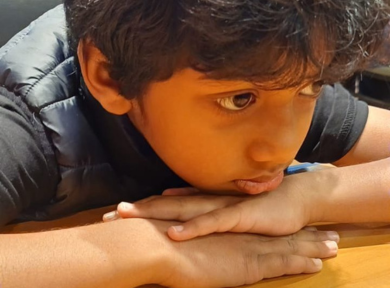How learned helplessness affects our emotional state?
When individuals feel powerless to influence their environment or alter the
course of their lives, it can have a significant impact on their emotional
well-being.
Feelings of hopelessness, low self-esteem, and depression often accompany
learned helplessness.
This state of mind can become self-perpetuating, as the belief that one is
helpless prevents individuals from taking action to improve their situation.
The paradox of powerlessness:
Although it appears counter-intuitive, individuals who have experienced a loss
of control in one area of their life may begin to generalise this feeling to
other areas as well.
For instance, someone who has repeatedly failed at work may start to believe
that they are incapable of succeeding in any endeavour, leading to a decline in
motivation and effort across multiple domains. This broadening of helplessness
can have profound consequences on an individual’s overall functioning and
quality of life.
Some tips to overcome learned helplessness and gain back
control of your life
Challenge negative beliefs: Replace self-defeating thoughts with more realistic
and empowering ones. For example, instead of thinking, “I always fail,” reframe
it as, “I may face setbacks, but I can learn and improve.”
Set achievable goals: Break down larger goals into smaller,manageable tasks.
Celebrate even the smallest victories along the way, as they build confidence
and reinforce a sense of control.
Seek support: Reach out to friends, or family, who can provide encouragement,
guidance, and perspective. Surround yourself with positive and supportive
individuals who believe in your capabilities and can help challenge your learned
helplessness.
Cultivate self-compassion: Treat yourself with kindness and understanding.
Acknowledge that setbacks and failures are a natural part of life, and they do
not define your worth or ability. Practice self-care and engage in activities
that promote self-esteem and well-being.
Take small steps towards change: Start by tackling situations or tasks where you
have some control or influence. By experiencing success in these areas, you can
gradually expand your belief in your ability to effect change in other aspects
of your life.
Learn from past experiences: Reflect on past situations where you felt helpless
and examine what factors were within your control and what was not. Focus on
learning and growing from these experiences rather than dwelling on the negative
outcomes.
Embrace a growth mindset: Adopt a belief that skills and abilities can be
developed through effort and practice. Emphasize learning and improvement rather
than solely focusing on outcomes. Embrace challenges as opportunities for growth
and view failures as learning experiences.
Take action and persist: Instead of succumbing to inaction, take small steps
towards your goals. Even if the results are not immediate or perfect,
maintaining perseverance and persistence can gradually dismantle learned
helplessness.
Overcoming learned helplessness takes time and effort. Be patient with yourself
and acknowledge that change is a process.
By implementing these strategies, you can break free from the cycle of
helplessness and cultivate a sense of empowerment and control in your life.







Comments
Your email address will not be published. Required fields are marked *